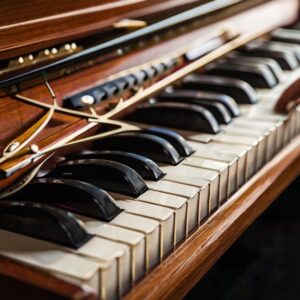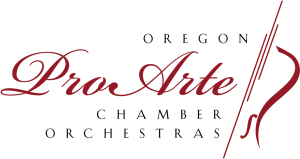Gone are the days when experiencing classical music exclusively meant attending live concerts or purchasing physical albums. Today, technology has deeply infiltrated this revered art form, transforming how we access and listen to classical music and how it’s performed and preserved.
Streaming Services
The emergence of digital streaming platforms has profoundly transformed the way we access and appreciate classical music. Platforms such as Spotify and Apple Music provide general access to a wide range of genres, including classical. It’s specialized services like Idagio and Primephonic that truly cater to the unique demands of classical music enthusiasts. These platforms offer features specifically designed to enhance the classical music listening experience; this includes superior audio quality which is crucial for appreciating the full depth and detail of classical compositions. They tackle common issues such as the inaccurate labeling of complex works — a frequent problem in general music services due to the intricate nature of classical music’s structure and compositions. This is addressed through advanced metadata systems, which correctly identify pieces and provide extensive information on the recordings, such as the conductor, orchestra, soloists, and even historical context. This level of detail enriches the listening experience, making these platforms invaluable tools for both seasoned classical music lovers and those new to the genre, facilitating a deeper understanding and appreciation of classical music’s rich tapestry.
High-Resolution Audio
. Standard audio formats often compress files to facilitate streaming, which can diminish the nuances and dynamic range that are critical to classical music. High-resolution audio, on the other hand, offers a superior listening experience by preserving the full spectrum of sound from original recordings. This technology captures the subtleties of each instrument and the unique acoustics of the recording environment, closely mimicking the richness and immersive quality of a live concert hall performance. Among these innovative technologies is MQA (Master Quality Authenticated), which encodes high-resolution data in a way that retains all the intricate details of the original studio performance while still being manageable for everyday streaming. This approach ensures that the delicate nuances of timbre and dynamics are faithfully conveyed but also enhances the overall listening experience by making studio-quality sound widely accessible, thereby bridging the gap between professional audio production and home listening environments.
Virtual Concert Halls
Virtual reality (VR) and augmented reality (AR) technologies are revolutionizing the classical music scene by providing immersive experiences that blur the lines between performers and their audiences. With VR, users can attend concerts by top orchestras from around the globe all from the comfort of their own homes, eliminating geographical and physical barriers to cultural events. These virtual concerts can transport viewers to prestigious and historically significant concert halls, recreating the grandeur and acoustic fidelity of these venues, or they can place the audience in entirely abstract, artistically crafted environments. These imaginative spaces are designed to amplify the auditory experience with visual elements that are synchronized with the music, thereby enhancing emotional impact and offering a multisensory experience. Augmented reality, on the other hand, adds another layer to this dynamic by overlaying digital information and visual enhancements over a real-world environment, thereby enriching the live performance with interactive elements that respond to the movements and nuances of the music in real time. Both VR and AR in classical music represent a groundbreaking shift in how we experience and interact with this timeless art form, inviting a new demographic of tech-savvy listeners while providing traditional enthusiasts with novel ways to engage with their beloved classics.
Artificial Intelligence Enhancing Classical Composition

Artificial intelligence (AI) is increasingly impacting the field of classical music, evolving from a technological novelty to an essential creative collaborator. By implementing AI in classical music composition, researchers and musicians are enabling the technology to learn from the complex compositions of legendary musicians such as Bach, Mozart, and Beethoven. These AI systems meticulously analyze existing works to understand pattern, style, and structure, subsequently generating original compositions that reflect the distinctive styles of these classical masters and introduce contemporary elements and interpretations. This fusion of historic musical wisdom with advanced computing capabilities pushes the boundaries of traditional composition and opens up new realms of creativity for modern composers. AI’s versatility extends to the restoration and preservation of historical recordings. By employing sophisticated algorithms, AI can enhance the clarity and quality of old, deteriorating recordings, converting them into high-quality digital formats while maintaining the integrity of the original sound. This breathes new life into fading classical masterpieces but ensures that they are preserved for future generations to appreciate in their fullest auditory glory, uninterrupted by the ravages of time and aging media formats. Hence, AI is redefining the boundaries of classical music creativity and composition important in preservation efforts, ensuring the longevity and accessibility of classical heritage.
Educational Tools and Digital Archives
Interactive applications and software platforms like StaffPad, which allows users to write music notation by hand that is then converted into a clean, digital format, and Modacity, which offers functionalities to help musicians organize and optimize their practice sessions, are revolutionizing the way musicians interact with and refine their craft. These tools simplify complex processes and provide valuable feedback that can lead to rapid improvement in skills.
Esteemed institutions like the Juilliard School are leveraging the power of the internet by offering online courses. This initiative broadens their reach, giving students worldwide the opportunity to learn from renowned musicians and educators without the need to physically attend courses in New York. Such advancements in educational offerings break down geographical and economic barriers, making high-quality music education more inclusive and accessible.
The proliferation of digital archives and libraries is transforming access to musical resources. These digital repositories provide unrestricted access to a wealth of sheet music, historical recordings, composer manuscripts, and detailed musicological research previously available only to those with access to well-stocked libraries or universities. By democratizing access to these valuable resources, digital archives are ensuring that anyone with internet access can study and enjoy classical music. This facilitates the academic study of music and supports a broader public engagement with classical music, fostering a deeper appreciation and understanding across diverse global audiences.
Social Media
Musicians share practice sessions, performances, and the realities of their daily musical lives, providing an unprecedented level of access and personal connection with their audience. This widens their reach and helps demystify classical music, making it more approachable and relatable to the younger generation. Platforms like YouTube also host numerous tutorials, masterclasses, and performances, making it easier for anyone to start their journey into classical music education. This opens up a world where learning from the masters is no longer confined to those who can afford private lessons or expensive conservatory tuition.
The Sync License Boom
With the explosion of content across media, there’s a burgeoning market for classical music in film, television, advertising, and even video games. This has increased opportunities for classical composers and performers. Music licensing platforms have streamlined the process of licensing classical music, ensuring that composers get their due while making it easier for content creators to integrate high-quality music legally and ethically into their projects.
